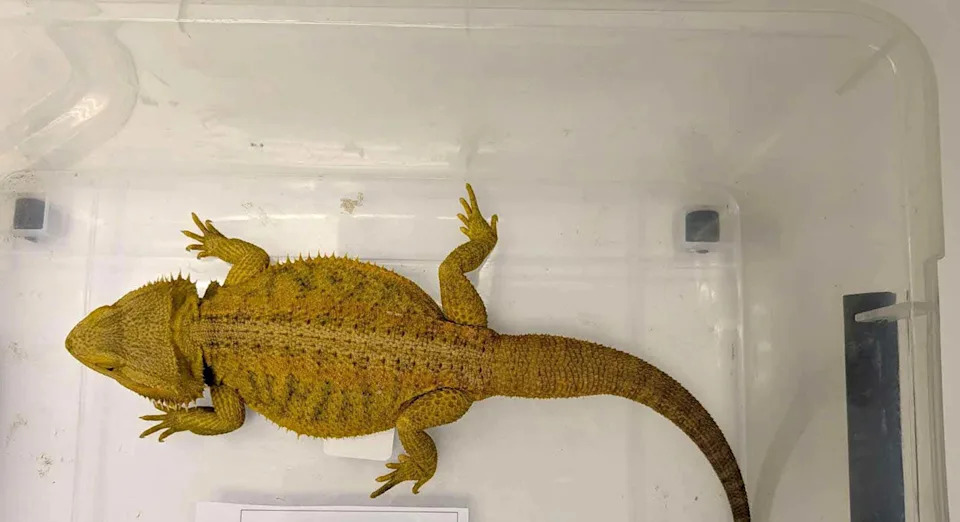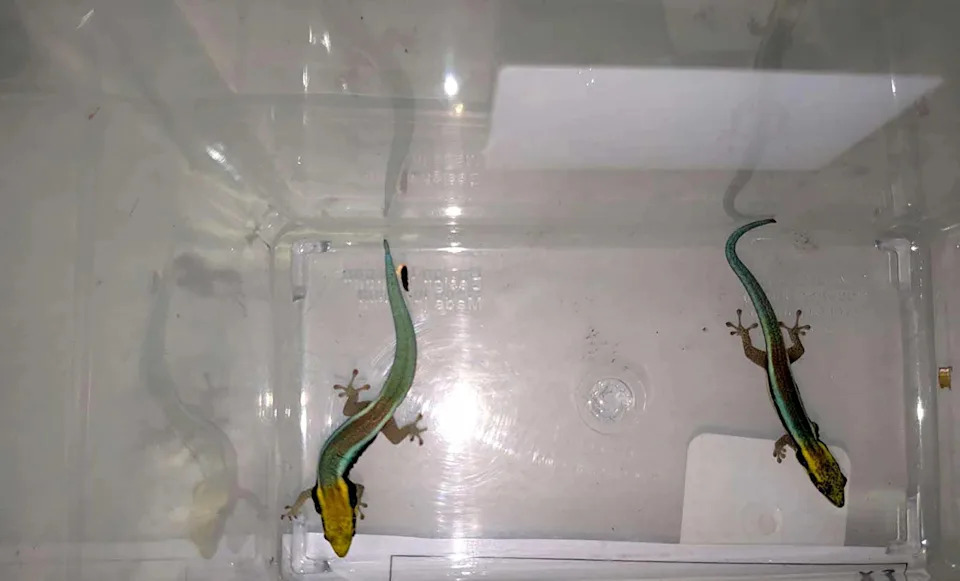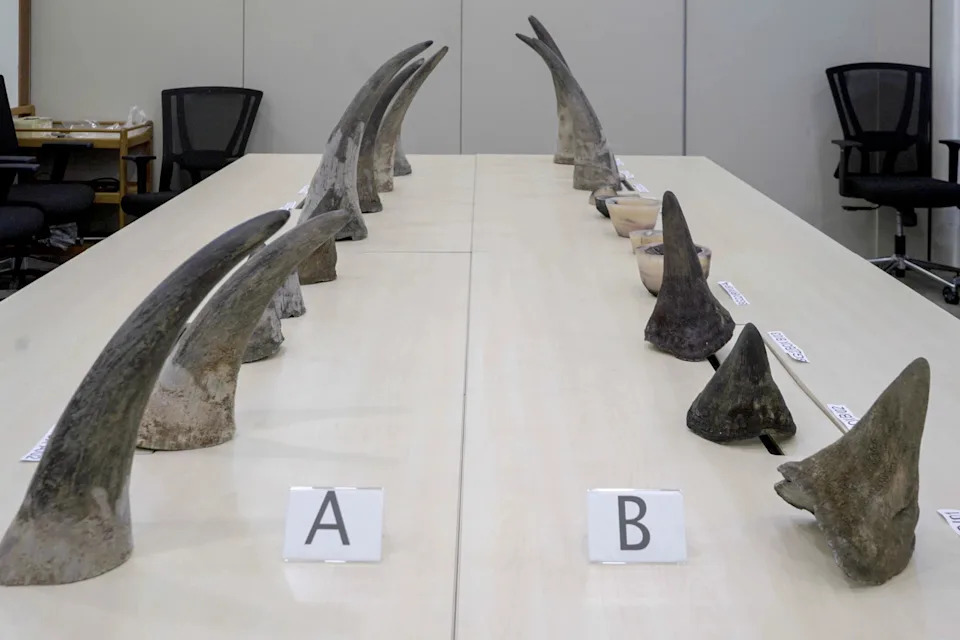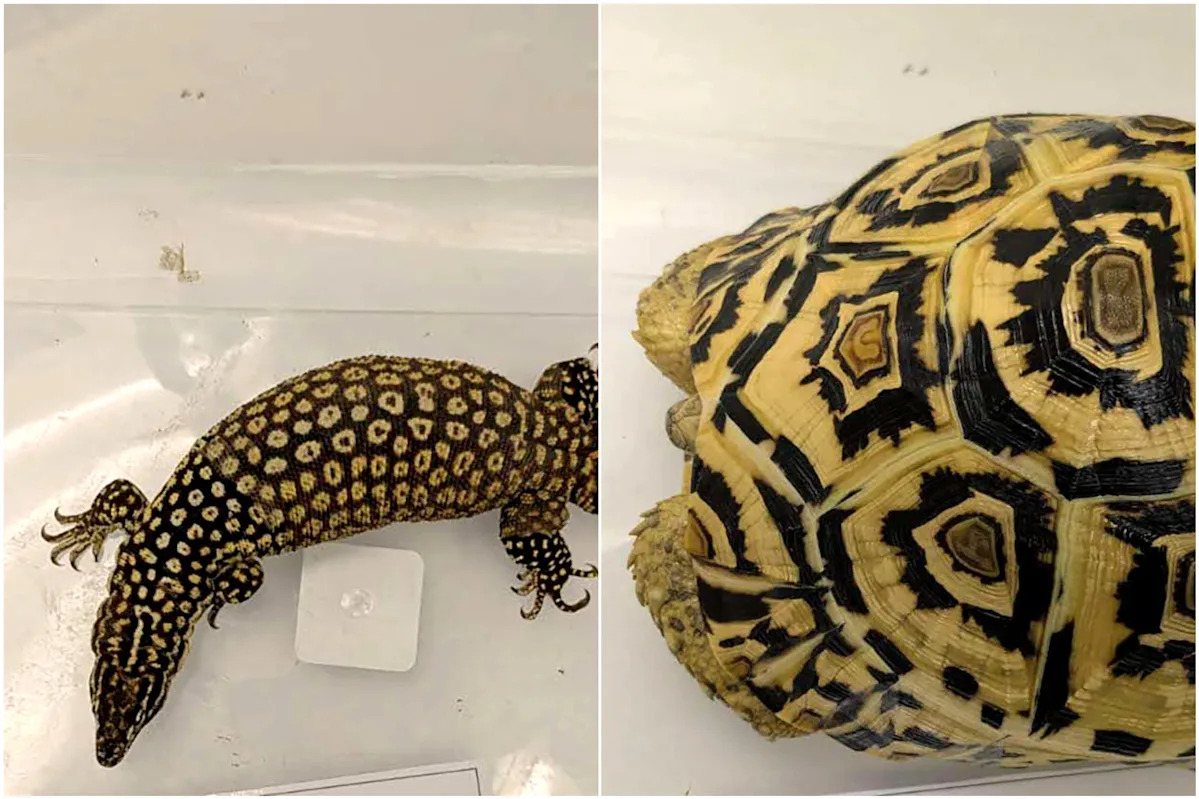SINGAPORE – Endangered animals, including a leopard tortoise and a spiny-tailed monitor lizard, were seized in raids on Oct 9 by the National Parks Board (NParks) as part of efforts to stop the illegal wildlife trade.
In a statement on Oct 20, NParks said the islandwide raids targeted people suspected of illegally trading wildlife through online platforms, including messaging app Telegram.
Six premises were raided and 16 wildlife specimens were seized, it said.
Among them were two species of lizards – yellow-headed day geckos and an Argentine black-and-white tegu.
The animals are currently being housed and cared for at NParks’ Centre for Wildlife Rehabilitation in Lim Chu Kang.
Investigations are ongoing, and the people involved have been interviewed in connection with illegal wildlife sales, NParks said.
“These enforcement efforts complement NParks’ border surveillance operations by extending the fight against illegal wildlife trade into domestic physical and online marketplaces,” it said.

The seized central bearded dragon.
NParks added that through regular monitoring and targeted actions, it makes sure that offenders are held accountable across all fronts.
In 2023, checks by The Straits Times uncovered six Telegram groups illegally peddling more than 35 species as pets.
The largest group had 16,000 members.
NParks also announced that together with the Commercial Affairs Department of the Singapore Police Force (SPF) and the Attorney-General’s Chambers (AGC), it was jointly awarded the Asia Environmental Enforcement Recognition of Excellence on Oct 17.
Coordinated by the United Nations Environment Programme, the award recognises the cross-agency collaboration between NParks, SPF, AGC and the Directorate for Priority Crime Investigation of the South African Police Service in a case involving Singapore’s largest-ever seizure of rhinoceros horns, valued at over $1.2 million.

Endangered animals seized on Oct 9 by NParks included these yellow-headed day geckos. The animals are currently being housed and cared for at NParks’ Centre for Wildlife Rehabilitation in Lim Chu Kang.
NParks and airport security intercepted 20 pieces of rhinoceros horns weighing over 34kg at Changi Airport in October 2022, with support from dogs from NParks’ K9 Unit.
The horns were discovered in baggage belonging to South African Gumede Sthembiso Joel, who was travelling from South Africa to Laos through Singapore. He was arrested, and the rhinoceros horns were seized by NParks.
Rhinoceros horns carry a high trade value and are treasured for their use in Chinese medicine and ornamentals.
The man was in January 2024 sentenced to two years’ jail after earlier pleading guilty to two charges under the Endangered Species (Import and Export) Act.
In the statement on Oct 20, Mr Alvin Tan, Minister of State for Trade and Industry, and National Development, congratulated NParks and its partners, saying that the award recognises NParks’ firm commitment to tackling the illegal wildlife trade.
He noted that the offender’s two-year imprisonment is the heaviest sentence meted out in Singapore to date for a case involving the smuggling of wildlife parts.
“This underscores the importance of our whole-of-government approach and international cooperation in combating illegal wildlife trade,” Mr Tan said.

Rhinoceros horns seized in October 2022.
NParks said that such trade threatens the survival of endangered species and contributes to habitat destruction around the world.
It also cautioned that smuggled animals may carry diseases that can infect both animals and humans, and that the public has a role to play in ensuring animal health and welfare as well as public health.
It urged the public to adopt pets from animal welfare groups or to purchase only from licensed pet shops, instead of buying from unlicensed sources such as social media or online platforms.
“Everyone has a role to play – pet owners, businesses and the public must not contribute to the demand for illegally imported animals,” NParks added.
Source: The Straits Times © SPH Media Limited. Permission required for reproduction
Discover how to enjoy other premium articles here
